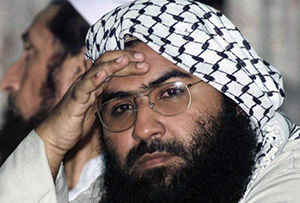New Delhi, Oct 2: China has again blocked India's bid at the UN to ban JeM chief Masood Azhar, the mastermind of the Pathankot terror attack.
According to highly placed sources, just hours before the deadline earlier today, China requested the UN committee, which is considering a ban on the chief of the Pakistan-based terror outfit Jaish-e-Mohammad (JeM), to keep on hold the designation.
After the attack on the IAF base at Pathankot on January 2, India in February wrote to the UN calling for immediate action to list Azhar under the Al-Qaeda Sanctions Committee.
The submission was armed with strong evidence of the outfit's terror activities and its role in the Pathankot attack that killed seven Indian military personnel.
India also told the UN Sanctions Committee that not listing Azhar would expose it and other countries in South Asia to threats from the terror group and its leader.
The India submission was considered by the Counter-Terrorism Executive Directorate (CTED) for technical aspects of the evidence provided. The technical team then with the support of the US, UK and France had sent it to all the members, sources said.
All were told that if there are no objections, the designation will be announced after the expiry of the deadline, the sources said.
“However, hours before the deadline, China requested the committee to hold up the banning of the JeM chief,” the sources said.
According to other government sources, the Chinese action was in “consultation” with Pakistan, which is not on the UN committee.
The UN had banned JeM in 2001 but India's efforts to ban Azhar after the Mumbai terror attack also did not fructify as China, one of the five permanent members of the UN group with veto powers, did not allow the ban apparently at the behest of Pakistan again.






Comments
Add new comment